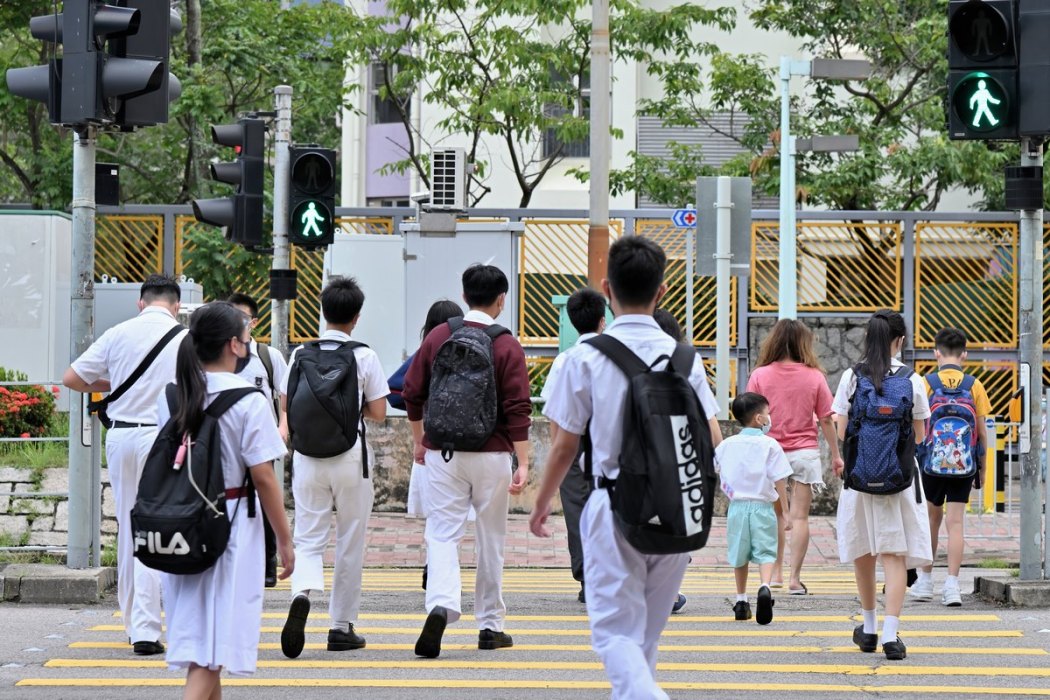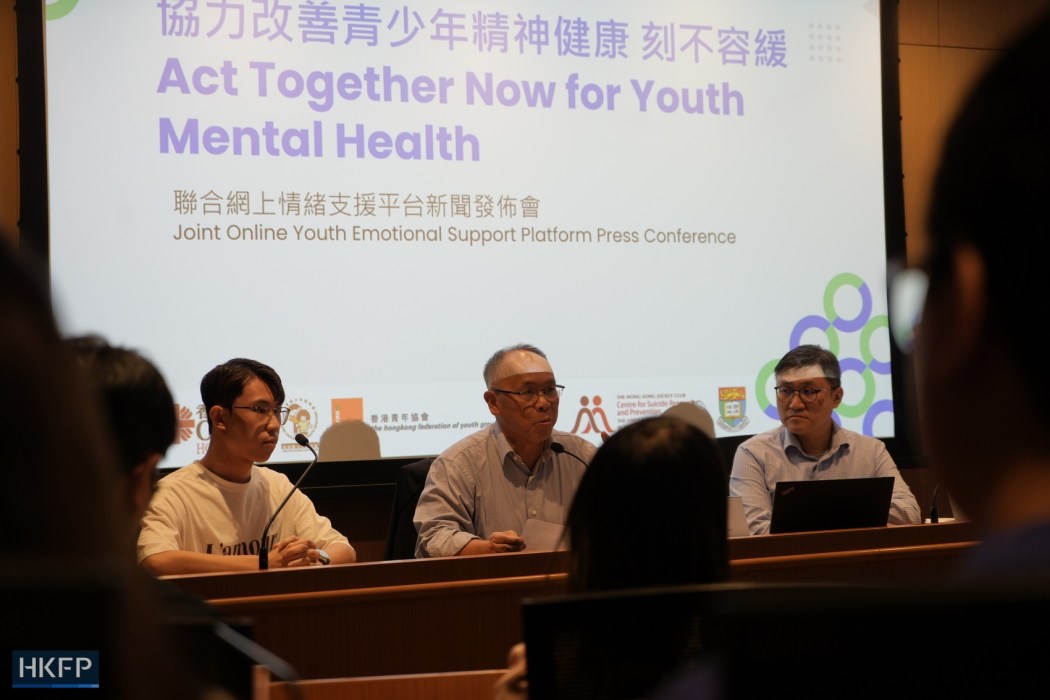Thirty-seven Hong Kong students have taken their own lives between the beginning of the year and last Wednesday, according to the city’s suicide prevention experts. In all, 269 students are known to have attempted suicide this year.

The Hong Kong Jockey Club Centre for Suicide Research and Prevention at the University of Hong Kong released their findings during a police event on suicide prevention on Thursday, local media reported. They said that student suicide figures peaked in May and October, and that five students had attempted suicide on school premises.
See also: HKFP’s comprehensive guide to mental health services in Hong Kong
It added that school-related factors, family issues, and mental health problems were the most common causes behind the phenomenon. Among the 306 students who attempted, or died by suicide, over 55 per cent had reported mental health problems, but fewer than 40 per cent had received any attention from the city’s welfare professionals.
Harrison Sit, an educational psychologist at the centre, said some of the reasons behind students’ distress “seemed trivial,” such as forgetting to bring in their homework. “But sometimes, they could not endure their mistakes, they may not allow an error in life,” he said on Thursday’s event, according to Ming Pao.
‘Serious alarm’
Under Secretary for Health Libby Lee told lawmakers on Friday that the recent situation raised “serious alarm” with the authorities, and they have been studying “school-based” emergency response mechanisms.

She said the Education Bureau (EDB) has been analysing the relevant cases to locate the risk factors behind students’ distress, while the Health Bureau (HB) and the Social Welfare Department (SWD) aim to allocate more resources to assist schools in identifying hidden, high-risk students and to provide support.
Teachers and social workers stationed at schools will identity students at higher risk and promptly intervene. “Teachers and social workers are generally trusted by students, it is appropriate that they would be the first layer of support,” Lee said in Cantonese.
Registered social workers from the SWD, assistant medical professionals from NGOs, as well as educational psychologists from the EDB would be matched with schools in need, she said.
Serious cases could be referred to HB’s psychiatric services in high priority, she added.
Speaking on the same panel on Friday, former secretary for justice Wong Yan-lung said some students may not adapt to the fast pace of academic life after four years of Covid-19 restrictions had disrupted normal schooling. Some also experienced family issues and the hardship under a slow post-pandemic economic recovery.
“The sense of powerlessness, and the feeling of being lost and in despair, were very strong,” he said in Cantonese.
Wong, who now chairs the government’s advisory committee on mental health, said schools should be given time and space “to put students’ mental well-being [as the] top priority.”
Increasing student suicide
A recent surge in student suicide reported in the media has brought the issue of youth mental health back into the spotlight. Last week, five NGOs held a joint press conference to urge for greater awareness and more support across society for youngsters in distress.
The NGOs called for schools to provide more mental health options for students, and urged them to create an environment where students feel safe to seek help. Parents and friends should also pay closer attention to “warning signs” – including mood swings and unusual behaviour on social media – among youngsters.

Speaking on Friday’s panel, lawmaker David Lam of the medical and health services constituency said people undergoing an emotional crisis may not actively seek help. He said the government should provide short-term measures to promote better sensitivity towards emotional problems experienced by students.
Under Secretary for Education Jeff Sze added that teachers and parents both played an important role in noticing the emotional changes of the youth. The EDB will host talks about parental education and students’ mental health in November and December, he said.
| 💡If you are in need of support, please call: The Samaritans 2896 0000 (24-hour, multilingual), Suicide Prevention Centre 2382 0000 or the government mental health hotline on 18111. The Hong Kong Society of Counselling and Psychology provides a WhatsApp hotline in English and Chinese: 6218 1084. See also: HKFP’s comprehensive guide to mental health services in Hong Kong. |
Support HKFP | Policies & Ethics | Error/typo? | Contact Us | Newsletter | Transparency & Annual Report | Apps
Help safeguard press freedom & keep HKFP free for all readers by supporting our team

LATEST FROM HKFP
HKFP has an impartial stance, transparent funding, and balanced coverage guided by an Ethics Code and Corrections Policy.
Support press freedom & help us surpass 1,000 monthly Patrons: 100% independent, governed by an ethics code & not-for-profit.










